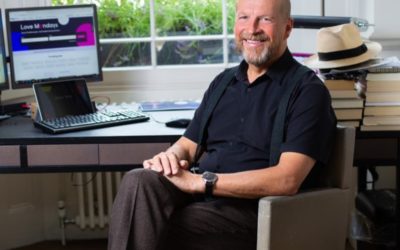Many people I’ve worked with have modestly described their career journey as ‘lucky’ in parts, whilst acknowledging their hard work along the way. They may have benefitted from strong leadership and mentoring, and their career has often been directed by the promotions they’ve secured.
However, the employment landscape has certainly changed in recent months, and the Seneca quote ‘luck is what happens when planning meets opportunity’ has never been more relevant now.
As we ease our way out of the pandemic, restructures and redundancies are sadly on the cards for many organisations. It’s now more crucial than ever to gain ownership of your career, future proof your employability, and take action towards a more fulfilling professional and personal life.
Over the years I have helped many clients to successfully navigate their career within their organisation. Here are my top 5 tips to put yourself in the driving seat of your career:-
1. Note your achievements as they happen.
Don’t leave it till you need to apply for a role, and then have to dust-off your CV that’s been neglected for years. It’s very difficult to remember your achievements, particularly the specific facts and figures that are essential for a stand-out CV.
Note down at the end of every week what you’ve achieved, no matter how small. Include the numbers and metrics where appropriate. Not only will it practically help you with your evolving CV, it’ll also focus your mind on the habit of positive reflection time which is much needed in these times of uncertainty.
2. Dual purpose networking.
At the moment our ‘opportunistic networking’ occasions are still quite limited. Therefore, a consistent and strategic approach is needed. Even if you are not specifically looking for a new role right now it’s beneficial to build your professional brand and become the ‘go to person’ for whatever your value is in your organisation. Find a genuine business need to build a relationship with someone from a different function (one that you also have a potential career interest in). Schedule a date in your diary to meet and learn more about their area of the business, and their current challenges. This can both benefit your mutual business agenda, and can also help lay the foundations for a future career move.
3. Drive your career agenda alongside the strategic business agenda.
Linked to the point above, if you’re looking to grow your career in an organisation, think strategically about where there is a gap, think broader than the obvious ‘step up the ladder’ in terms of a title.
The employment landscape has changed significantly and there are no ‘set in stone’ roles. Organisations evolve roles to suit their business agenda and you can play an influential part of that journey. If you spot a business need in the organisation that matches your experience, skills, and career interest then take action to share this with your most influential stakeholders. You may well have the chance to influence the future shape of your organisation, and at the very least you will be forefront of mind if and when these opportunities occur.
4. Develop career adaptability.
Take the agile approach to your career. Linear steps up the ladder no longer exist. This expectation can lead to frustration, and also a lack of ‘future-proofing’ if you fall off the ladder from the top.
When people tell me their career stories, I sometimes hear them justify a sideways move as if it’s viewed as a less favourable option; this mindset is shifting. Careers are not linear. Forget about the ladder and think about how you are learning new transferable skills, and building your career AQ (Adaptability Quotient). One of my favourite career theorists Mark Savickas talks about the 4 C’s of career adaptability. Here’s a few self-coaching questions based on his framework.
- Concern – What is the future of my industry/organisation how can I prepare for it?
- Control – To what extent do my behaviours and actions at work match my values?
- Curiosity – What further opportunities can I explore for professional growth?
- Confidence – When I’m performing at my very best I am.…. (complete this sentence)
5. Heighten your self-awareness.
Better self-awareness allows you to make better career choices. Know your values, here’s a link to my short video on this: https://www.linkedin.com/posts/stephanierixcareercoach_values-careercoaching-careerdevelopment-activity-6661169053782151168-VHli
Personalised 360 evaluations can also be very helpful for identifying your behaviours from others’ perspective and can highlight any development gaps. There are also plenty of free and reasonably priced tools to evaluate your strengths and personality from many different providers. Please get in touch if you’d like some recommendations to suit your needs.
***
Stephanie Rix Executive Career Coach: Stephanie Rix is an Executive Career Coach specialising in leadership with over 15 years corporate experience. Stephanie has an MA in career development and coaching, and is a board director for the Career Development Institute. Stephanie owns ‘Life’s Work Consulting’ delivering career and leadership coaching programmes for both individuals and organisations. She has a diverse client base across various organisations and sectors. Stephanie is also an Associate of Women Returners Ltd delivering career returner programmes partnering with major organisations. She is also a regular facilitator, speaker and coach for Warwick Business school and enjoys coaching many international MBA professionals from a wide variety of sectors.







